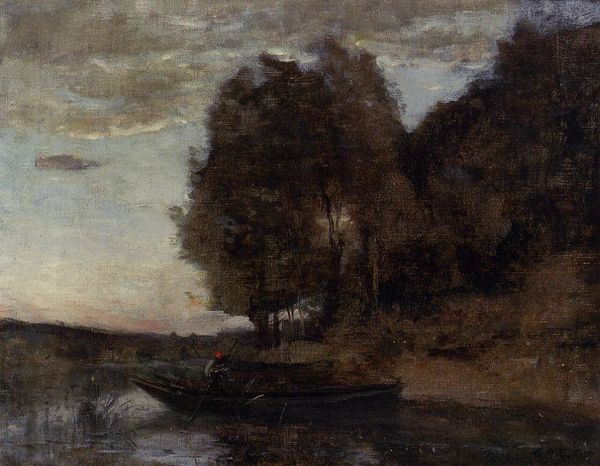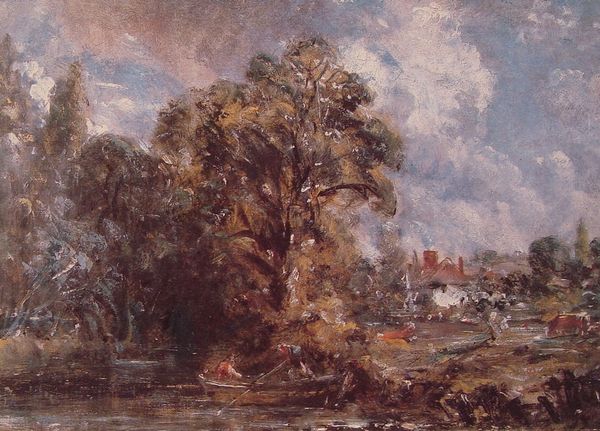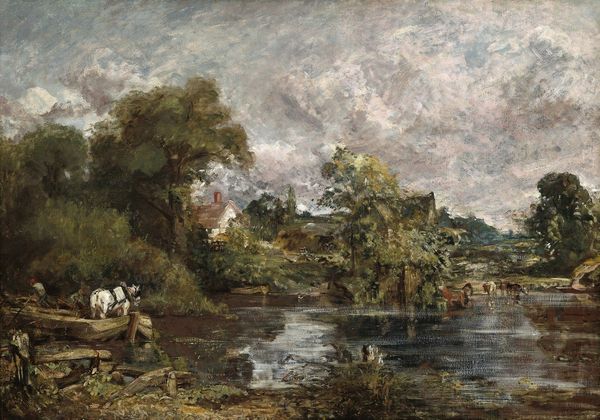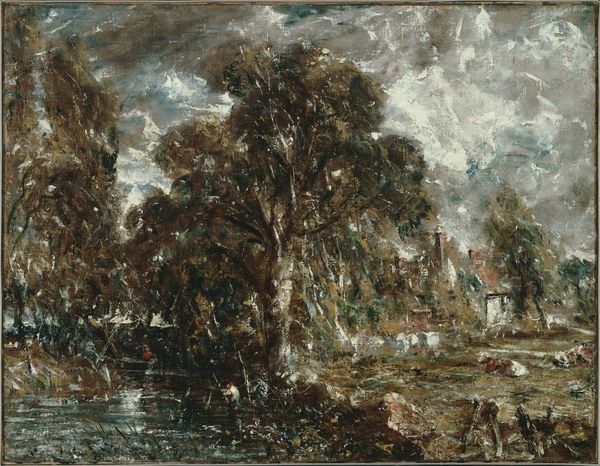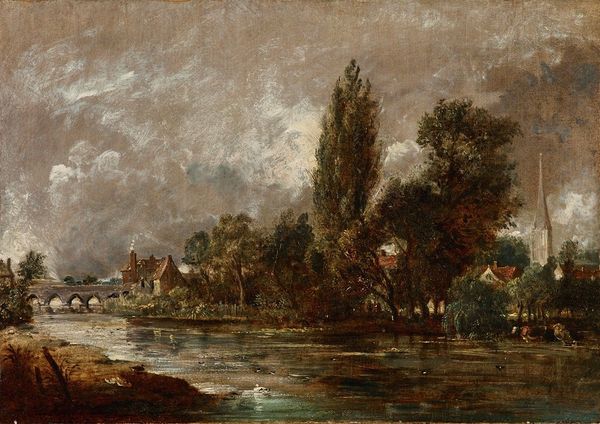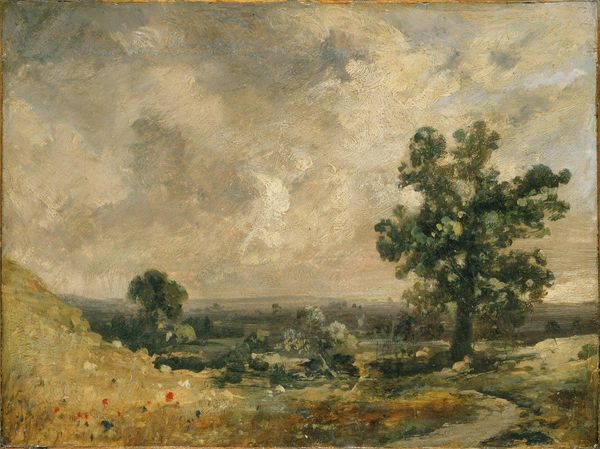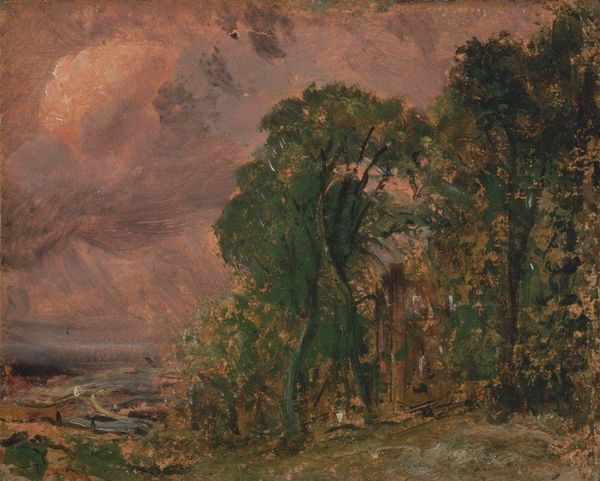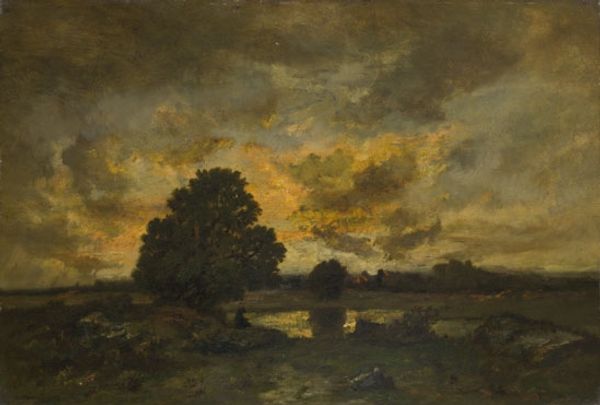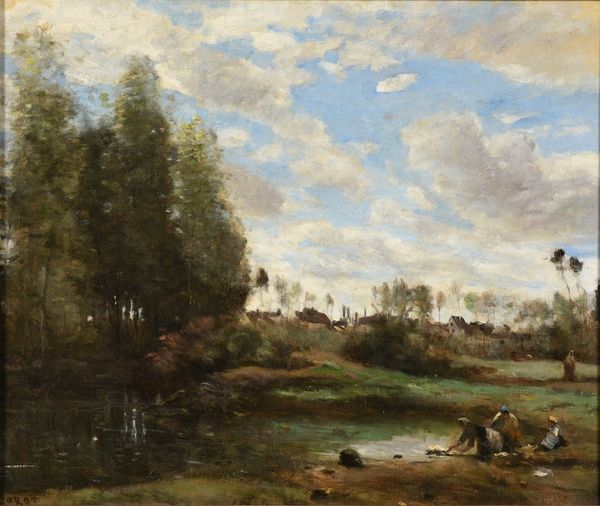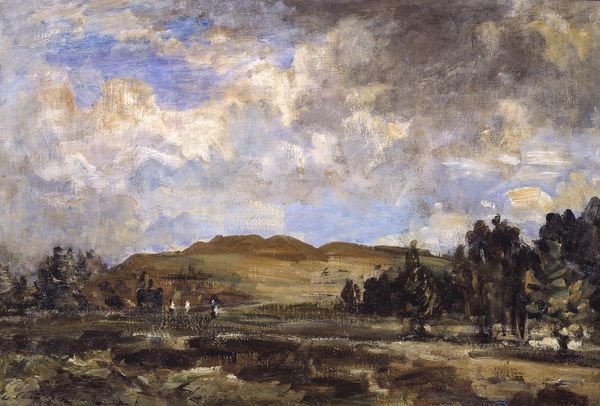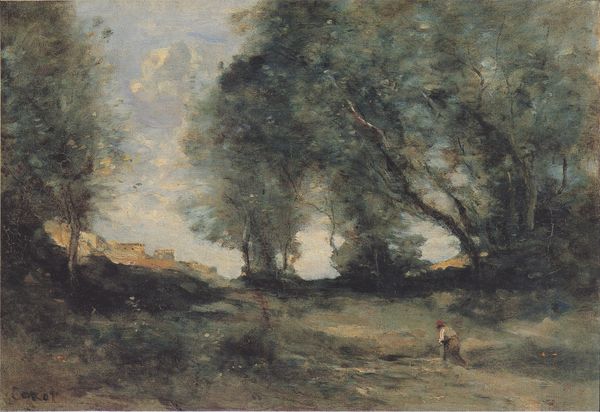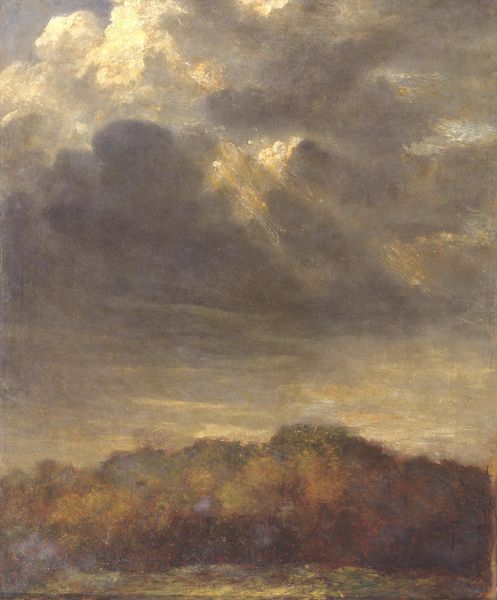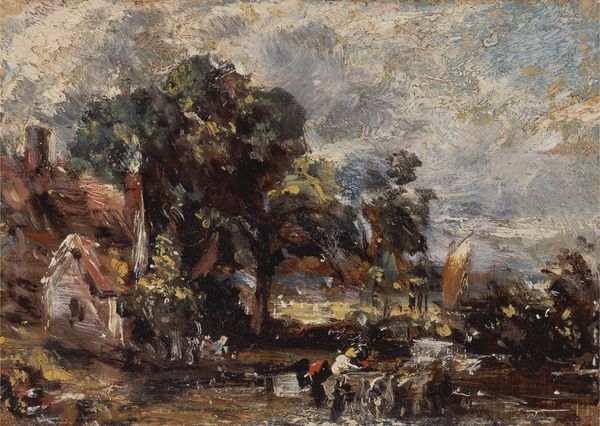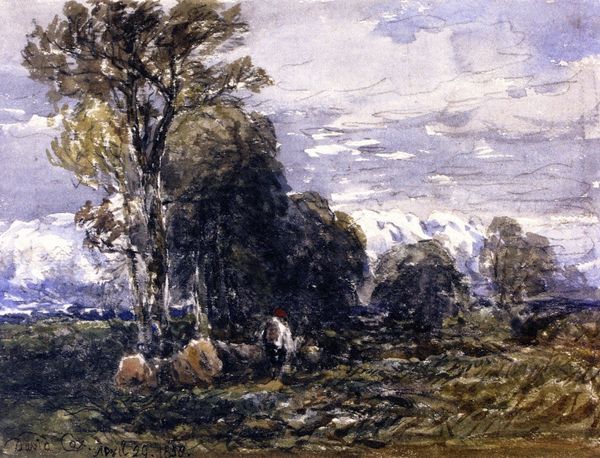
Study for The Leaping Horse (View on the Stour)
0:00
0:00
johnconstable
Saint Louis Art Museum, St. Louis, MO, US
plein-air, oil-paint
#
sky
#
impressionism
#
plein-air
#
oil-paint
#
landscape
#
river
#
impressionist landscape
#
oil painting
#
romanticism
#
water
#
cityscape
Dimensions: 46 x 63.5 cm
Copyright: Public domain
Curator: John Constable, known for his landscapes that really *feel*, presents us with "Study for The Leaping Horse (View on the Stour)". It's rendered in oil paint, and one senses a plein-air immediacy, wouldn’t you agree? Editor: Immediately, I'm struck by the mood, a sort of romantic gloom, almost as if Turner and Courbet had a baby. Look how the dense, overgrown left contrasts with the churning sky! Curator: Exactly! There’s this wonderful tension, that dialectic that underscores much of Romantic art between untamed nature and humanity's presence... You get these flashes of light in the river offset by dark shades, heavy cloud. Editor: Is it a critique of industrialization? The romantic gaze idealized nature in counterpoint to burgeoning industry. Is it yearning? Fear of change? Curator: He's concerned with more than simple topography! He's searching for the *truth* of the landscape—the play of light, the atmospheric effects, those mercurial states we often ignore. Constable himself noted wanting to paint light as an artistic “science.” Editor: Agreed. Although to be sure, the so-called truth is itself ideologically framed by the artist's historical position. Whose truth are we really seeing here? A celebration of bourgeois land ownership masked as humble pastoralism perhaps? The sky may be turbulent, but this scene is hardly an objective transcription. Curator: Always digging! Well, I am curious though: are the darks casting a long shadow? Is it a sunset that speaks to nostalgia, something elegiac perhaps? A little memento mori even? Editor: Perhaps it reflects the power dynamics of the time, land ownership concentrated in the hands of the elite. It also serves as a subtle comment on class and access to the very notion of "nature." This, of course, echoes into the present. Who gets to experience and enjoy it, is still largely decided by capital! Curator: Yes, well put. Now, considering the Leaping Horse, one almost hopes it would disrupt these societal norms you are addressing. Though alas, the horse is forever frozen, an eternal promise! Editor: The lack of a Leaping Horse and its implied action could perhaps be a metaphor of frustrated or unrealized potential, on both a personal or societal level? So the artist gives us some of that emotional register as well, if only implied...
Comments
No comments
Be the first to comment and join the conversation on the ultimate creative platform.
